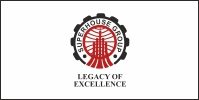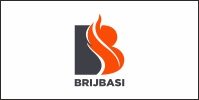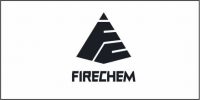However, it can be extremely challenging to know precisely what the requirements are for each type of vessel and what each vessel’s compliance prerequisites are. Let’s take a look at the most common causes of fires onboard ships, the precautions that need to be taken to prevent them from occurring, and the equipment that ought to be used before, during, and after fire hazards.
Fires on ships generally start in either the accommodation area or the engine room. Some of the most common reasons why accidental fires can start onboard ships include:
Leakage in high-pressure pipes
In older ships, the possibility of oil leakage from a high-pressure pipe due to improper fitting can be a source of fire.
Electrical failure or overload
Fires can start due to purely technical reasons like overloaded circuits, loose connections, equipment failure, fatigued electrical wiring, improper installations, battery failures, overheated appliances, unattended circuits that can lead to a spark, etc.
Damage during maintenance operations
Maintenance operations of the ship often include a spot of welding or gas cutting, which has a high-risk potential of starting a fire.
Human fault
The human fault is one of the most common reasons for fires aboard ships, despite the fact that all marine personnel is trained extensively. Throwing live cigarette ends into dust bins, unattended appliances, overloaded sockets, etc., are some of the careless behaviors that result in fires.
Following are the major fire hazard areas identified in marine application:
- Engine Room
- Cargo Spaces
- Ship Kitchen Facility
- Accommodations
- Electrical Panel Room
- Pump Room
Apart from these, some of the basic rules which can be followed to prevent accidental fires on ships include:
- Prohibition of open flame on ships or in cabins, such as candles, cigarettes, or incense sticks,
- unless they are lit in the presence of people and extinguished before leaving
- Ensuring that circuit overloading is avoided at all costs
- Avoiding carrying of oil rags into cabins or accommodation areas where the possibility of
- accidental flames are higher
- Following all safety procedures while performing maintenance operations like welding or gas cutting etc.
- Complete understanding of fire-fighting equipment and basic training in its operation
To have safe sailings and tackle a fire emergency onboard, ships and other marine applications must have adequate fire detection and prevention measures in place.
Although prevention is better than cure, fires are an occupational hazard that cannot be foreseen. The only option in such an unfortunate circumstance is to mitigate the situation as much as possible.
Fire-fighting appliances and personal safety equipment can be used to save the assets and lives of crew members in the event of a fire. Some of the most frequently-used devices in case of a fire-related emergency aboard the ship are mentioned below:
Portable Fire Extinguishers
Portable fire extinguishers are the most efficient devices to douse fires aboard a ship and stop them from spreading.
There are different types of fire extinguishers, based on the type of fire and the material used in the extinguisher. Choosing the appropriate portable fire extinguisher and installing it at an accessible location is an important fire-safety measure.
Fire detection and suppression systems
Detection and alarming with suppression using flooding in enclosed areas
Fire Retardants
These are used to prevent the fire from spreading to sensitive areas.
Fire Hydrants
Fire hydrants draw and supply water in times of emergency situations.
Fire Hoses and Nozzles
Fire hoses and nozzles are used to actually spray water over the part that has caught on fire.
Fire Suits
Fire suits are important for personal safety in fires.
Breathing Apparatus
Includes a face mask and a connected oxygen cylinder.
Lifeboats and Life Rafts
Basic requirements for the safe evacuation of personnel.
Marine safety is a crucial concern in today’s world, especially as shipping accidents are on the rise despite advanced technological resources. Preventing fire hazards on ships for safe travel and transport of goods can be easily achieved by using fire safety equipment from a reliable source, periodic maintenance of safety equipment, and training of the personnel.
















































